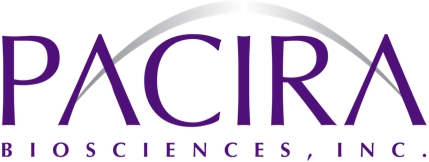Data Update Supports Infiltration with EXPAREL® into the Transversus Abdominis Plane for Postsurgical Pain Management
A recent independent study led by
- A 60.7 percent reduction in opioid consumption at 48 hours (P<0.001)
- Higher return of bowel function within 48 hours (P<0.001)
After presenting these findings at the 2013 Annual Meeting of the
Additionally, a Phase 4 study (the “TRANSCEND” trial) was conducted by Pacira in patients undergoing gynecologic or colorectal surgery. Prior to surgery, patients received either EXPAREL or sham (normal saline) iTAP as part of a multimodal pain regimen. The study goal was to demonstrate the utility of EXPAREL by achieving either co-primary endpoint of Day 3 Overall Benefit of Analgesia Score (OBAS) or total opioid rescue. A pre-planned interim analysis was performed on the first 39 patients recruited, which revealed a signal in one of the co-primary endpoints (OBAS), but poor compliance with the algorithm for total opioid rescue in the protocol and no signal for that co-primary endpoint. As a result, the decision was made not to continue the trial, but rather to analyze all of the patients recruited up to that point (n=67). In this analysis, the total opioid rescue continued to show no signal (with only 35 percent of patients protocol compliant), while the OBAS demonstrated an advantage for EXPAREL (P<0.05) compared to the sham-treated group.
These data reinforce earlier findings from two studies, one
of which was presented at the 2013 Annual Meeting of the
“We believe that the growing body of clinical evidence continues to
support EXPAREL as the foundation of a multimodal platform for
long-acting postsurgical pain management; these studies show its benefit
when administered via iTAP compared to traditional TAP procedures, while
minimizing the use of opioid-based PCA devices for pain control that are
associated with opioid-related adverse events,” said
About Pacira
About EXPAREL®
EXPAREL (bupivacaine liposome injectable suspension) is indicated for single-dose infiltration into the surgical site to produce postsurgical analgesia. The product combines bupivacaine with DepoFoam, a proven product delivery technology that delivers medication over a desired time period. EXPAREL represents the first and only multivesicular liposome local anesthetic that can be utilized in the peri- or postsurgical setting in the same fashion as current local anesthetics. By utilizing the DepoFoam platform, a single dose of EXPAREL delivers bupivacaine over time, providing analgesia with reduced opioid requirements for up to 72 hours. Pivotal studies have demonstrated the safety and efficacy of EXPAREL in patients undergoing bunionectomy or hemorrhoidectomy procedures and additional studies are underway to further demonstrate the safety and efficacy in other procedures. Additional information is available at www.EXPAREL.com.
Important Safety Information
EXPAREL is contraindicated in obstetrical paracervical block anesthesia. EXPAREL has not been studied for use in patients younger than 18 years of age. Non-bupivacaine-based local anesthetics, including lidocaine, may cause an immediate release of bupivacaine from EXPAREL if administered together locally. The administration of EXPAREL may follow the administration of lidocaine after a delay of 20 minutes or more. Other formulations of bupivacaine should not be administered within 96 hours following administration of EXPAREL. Monitoring of cardiovascular and neurological status, as well as vital signs should be performed during and after injection of EXPAREL as with other local anesthetic products. Because amide-type local anesthetics, such as bupivacaine, are metabolized by the liver, EXPAREL should be used cautiously in patients with hepatic disease. Patients with severe hepatic disease, because of their inability to metabolize local anesthetics normally, are at a greater risk of developing toxic plasma concentrations. In clinical trials, the most common adverse reactions (incidence greater-than or equal to 10%) following EXPAREL administration were nausea, constipation, and vomiting.
Please see the full Prescribing Information for more details available at http://www.exparel.com/pdf/EXPAREL_Prescribing_Information.pdf.
Forward Looking Statements
Any statements in this press release about our future expectations,
plans and prospects, including statements about our plans and
expectations regarding EXPAREL, and other statements containing the
words “believes,” “anticipates,” “plans,” “expects,” and similar
expressions, constitute forward-looking statements within the meaning of
The Private Securities Litigation Reform Act of 1995. Actual results may
differ materially from those indicated by such forward-looking
statements as a result of various important factors, including risks
relating to: the success of our sales and manufacturing efforts in
support of the commercialization of EXPAREL; the rate and degree of
market acceptance of EXPAREL; the size and growth of the potential
markets for EXPAREL and our ability to serve those markets; our plans to
expand the indications of EXPAREL to include nerve block, including the
timing and success of an sNDA; our plans to continue to manufacture and
provide support services for our commercial partners who have licensed
DepoCyt(e); our commercialization and marketing capabilities; and other
factors discussed in the “Risk Factors” of our most recent Annual Report
on Form 10-K for the fiscal year ended
Source:
Company Contact:
Pacira Pharmaceuticals, Inc.
Jessica
Cho, 973-254-3574
or
Media Contact:
Pure
Communications, Inc.
Susan Heins, 864-286-9597

